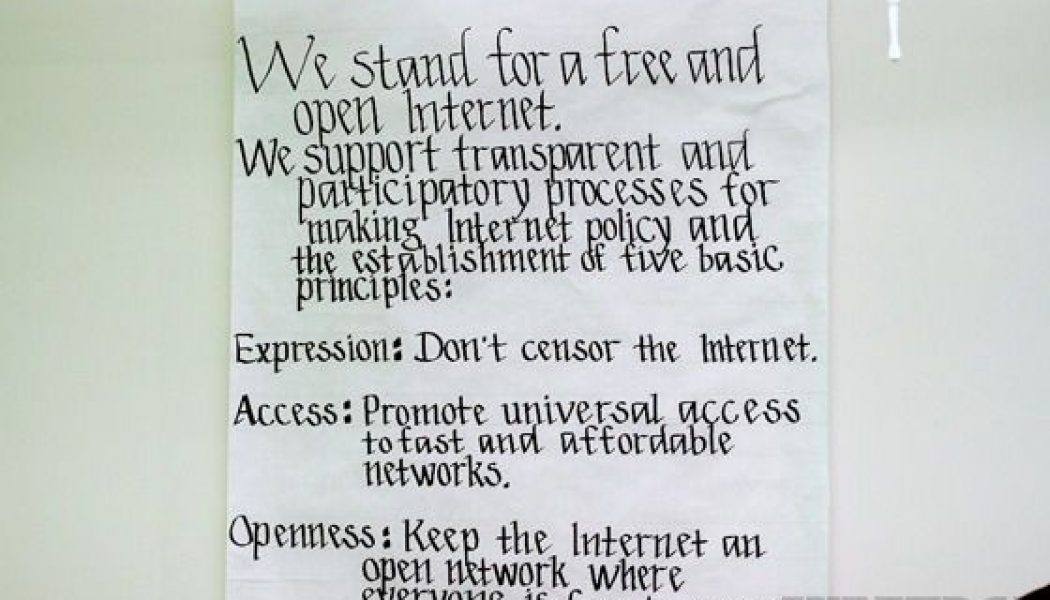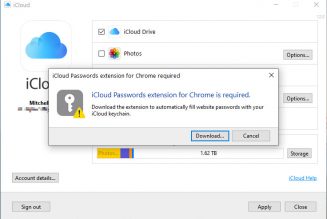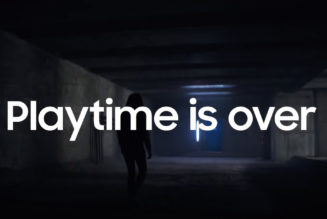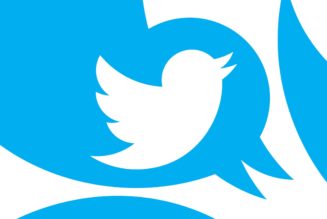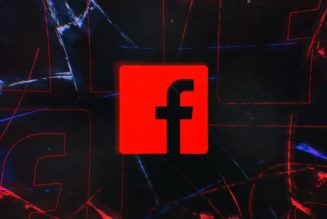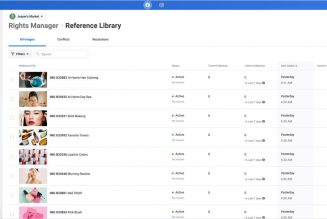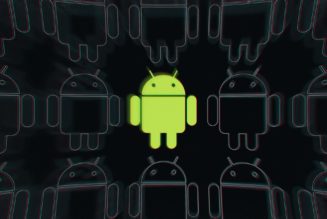This week, Twitter found the courage to finally deal with its most toxic user: the president of the United States. After giving one of Trump’s untrustworthy tweets a modest reality check, the president exploded in a tantrum. He threatened to “shut down” social media companies, and then personally targeted a Twitter employee to intimidate and harass him. Then, Trump quickly threatened Twitter with revenge by signing a scorched-earth executive order that would blow up the entire internet. Trump’s Republican lackeys, including Sens. Marco Rubio (R-FL), Ted Cruz (R-TX), and Josh Hawley (R-MO), scurried to stroke the president’s ego with deceitful interpretations of law and threats to sue Twitter.
Republicans, who recently warned of a “government takeover of the internet,” are now staging one in reverse — trying to turn the internet into the government.
So, is Twitter a public entity that doesn’t deserve the protections of the First Amendment? No, that’s silly — but there’s at least some irony in this idea coming back to haunt internet companies. Huge social media companies like Twitter, Facebook, and Reddit have long sold a vision of themselves as exalted public squares. In this vision, they bring people together across the world and even lift them up from the poverty of being disconnected, ensuring them the right to free expression.
In 2017, somewhere at the peak of Facebook’s self-regard, Mark Zuckerberg shared a vision of his social network as a kind of quasi-government that sits between social institutions and actual governments:
Our world is more connected than ever, and we face global problems that span national boundaries. As the largest global community, Facebook can explore examples of how community governance might work at scale.
Facebook went on to build institutions that look a lot like the checks and balances of an actual government. This year, the company announced the members of its new oversight board — something like a supreme Facebook court — who will independently make moderation decisions. They can advise on Facebook’s policies and even overrule Facebook’s CEO. The group includes several political aristocrats, including the former prime minister of Denmark. Here’s what Zuckerberg said about the group:
The board will be an advocate for our community — supporting people’s right to free expression, and making sure we fulfill our responsibility to keep people safe.
That sounds a lot like something a government would say!
Facebook’s adopted role as something like a government has led it toward a stance on free speech that often frustrates its ability to manage its community. Just this week, The Wall Street Journal reported that Facebook ignored internal analysis suggesting its algorithm was responsible for stoking divisiveness. (Executives reportedly ignored it.) As my colleague Casey Newton wrote in 2018, it took a genocide in Myanmar for Facebook to realize that some speech is so hateful it can’t be kept up just because it’s newsworthy.
Outside of extreme cases, Facebook still tries to appear neutral on policing speech. In a public address on free speech last year, Zuckerberg said that Facebook doesn’t fact-check political ads because it’s not “right for a private company to censor politicians or the news in democracy.” As Twitter CEO Jack Dorsey took on Trump this week, Zuckerberg knocked his rival on Fox News. “We have a different policy than Twitter on this,” Zuckerberg said, even though the company’s policies aren’t really that different. “I believe strongly that Facebook shouldn’t be the arbiter of truth of everything that people say online.”
Facebook is the biggest example with the most users, but again, it’s not a unique one. When I rode along on Reddit’s internet campaign bus during the 2012 election, Reddit founder Alexis Ohanian carried a “Declaration of Internet Freedom” from town to town. They actually wrote it on a giant scroll of paper, like revolutionary cosplayers:
:no_upscale()/cdn.vox-cdn.com/uploads/chorus_asset/file/20008997/internetbus_1.jpg)
Unfortunately, Reddit’s era of enlightenment quickly crashed and burned as the company tried to have it both ways: to appear to its users like a government that would honor a nearly unlimited right to free speech while also inviting advertisers to have their brands live next to snuff, racism, and nude photos of celebrities. As Reddit let Nazis run wild on its website to appear principled, it started to look like a failed state. The company eventually learned that it can’t survive while pretending to be the government, so it adopted stronger anti-harassment and moderation rules, and began progressively isolating and banning entire forums filled with troublemakers.
Then there’s Twitter. Twitter once identified itself as “the free speech wing of the free speech party,” a pithy doctrine that clung to the company like a foul odor as it became overrun by bad actors. Twitter and its colleagues in the industry have long operated along the principle that “more speech is better,” despite internally recognizing that in many cases this is a dangerous assumption with deadly consequences. I’m sure that tech visionaries actually believe they are doing the right thing by maximizing free speech, although it is convenient that this principle seems good for growth.
On the other hand, Twitter, Facebook, and other major social networks have definitely increased enforcement against bad content in recent years. Organized harassment campaigns and the rise of state-sponsored misinformation have threatened the integrity of the networks. Robust moderation is not just a right of expression ensured by the First Amendment, it is also the rational business choice. So why have these companies been so afraid of publicly flexing their right to moderate? One answer is intimidation.
Tech companies have been besieged in recent years by a right-wing campaign against “bias,” led by President Trump and prominent Republicans. Despite conservative bias lawsuits routinely failing in court, tech companies have lived in constant fear of the president’s erratic rage and the wrath of his supporters. As soon as Twitter labeled Trump’s tweet this week, White House deputies incited harassment against an individual Twitter employee, who began receiving death threats. Trump has made clear that defying him has a severe and immediate cost.
Trump’s wave of reactionary furor, once mocked by his peers, has taken over the Republican party. Fellow Republicans who once denounced him as a joke and a crook are now greasy wheels in his engine of spite and revenge. He has avoided all accountability in office, which by extension seems to have convinced fellow Republicans that they can get away with forcing through extremely unpopular policies even in an election year.
Meanwhile, we are experiencing many emergencies at once. More than 100,000 people have died to the novel coronavirus, and it is likely many of these deaths could have been prevented by a competent federal response. More than 40 million people have filed for unemployment in the country this year, threatening a new Great Depression. Police officers continue to kill black people with impunity, provoking national mourning and civil unrest. The country once again faces geopolitical threats from nations that intend to disrupt the fragile machinery of our democracy. Compounding all of this trauma, we are burdened with a president who, by any conceivable standard, is unfit to serve the public.
The moderation decisions of Facebook and Twitter may seem like frivolous distractions on a normal day, but in the context of enabling Trump’s rule, they must be considered in the broader context of American life. When the safeguards we thought we had to prevent the damage of someone like Donald Trump have failed, what else is there? Who else has enough power to help turn the tide against a government sliding into authoritarianism and corruption? What if one of those people is the CEO of Twitter?
Trump’s presidency has been defined by cruelty and chaos, but one thing has been consistent: the man loves to tweet. He used Twitter during his first presidential campaign like a zero-day attack on traditional institutions. You couldn’t go a day in 2016 without having the president’s increasingly outrageous tweets filtered through television news. Twitter may have privately reckoned with its role in helping Trump get elected in the years after, but it publicly stuck with the position that the president’s tweets are newsworthy and important to democracy — even if the president violated Twitter’s policies.
The president was above the law on Twitter, until now. Jack Dorsey has finally taken action against a president who wants to eliminate all checks on his power, both public and private. As journalist Kevin Roose put it, like a forum warrior of old, Trump has sparked a high-stakes fight with the mods. The mods are wising up.
Republicans have spent years spinning a false story of conservative persecution, and now they are trying to slay their imaginary monster. Trump and his allies want to strip Twitter of its own right to free speech just for challenging the president on his lies and misbehavior. They plan to do it by turning the internet’s democratic vision against itself: arguing falsely that social platforms are not spiritually public, but legally public. Having failed to govern, Trump wants to saddle Twitter with the responsibility of governing.
Twitter isn’t the government, but it has power that the government doesn’t have. It has the right to say the president is lying. It has the right not to distribute his calls to violence. And it has the right to ban him completely. Twitter has these rights the same as you and I do, because of the First Amendment, which prohibits the government from curbing what we say or forcing us to say what it wants. In a way, Jack Dorsey has gotten exactly what he wanted. He is the leader of the free speech wing of the free speech party.
For once, the answer to bad speech is more speech. Twitter is speaking loudly.
